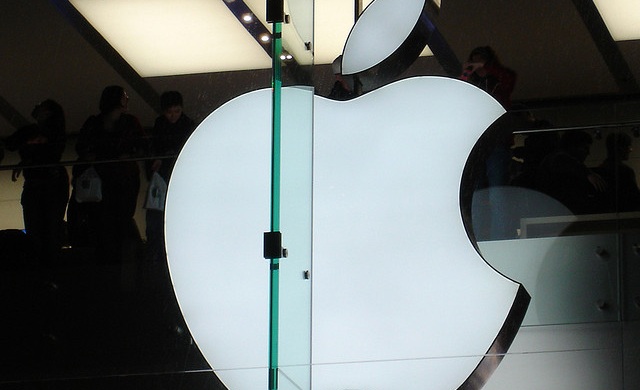A key question for Apple (NASDAQ:AAPL) shareholders relates to its extremely high earnings per share (currently $41.02). Investors have been able to ignore this warning sign because the company has maintained the popularity of its products, whilst generating new revenue streams and product lines. The question is: how long will Apple sustain its earning levels?

Apple continues to expand its market by bringing in new customers in all of its product lines. For instance, the iPhone gained 1.7% more market share over the last three months, slowly closing the gap between itself and the market leader, Google’s Android phones.
With Apple’s growth trending upwards over the last five years, the technology giant has extended its iTunes store services in Hong Kong, Singapore, Taiwan and nine other countries in Asia. The iTunes store is the best way for users of any Apple products to legally purchase and download music, television shows, and movies and this decision allows users in these areas to access over 20 million songs and hundreds of television shows and movies, with many offered in Hi-Definition.
Apple is constantly competing with Google across various markets, for example, as the internet search company recently unveiled the Nexus 7 tablet. While this tablet is much smaller than an iPad, it provides great resolution and offers Android’s new operating system, Jellybean.
While these products may not seem like direct competitors, the Nexus 7 release expected in late July will certainly diminish Apple’s 68% share of the tablet market. On the other hand, Apple just won a patent case banning the sale of the Galaxy Tablet 10.1 in the United States, which should temporarily keep that product out of the US market.
Apple also settled an iPad trademark issue with Proview Technology in China, which was reflected by the share price reaching a two-month high recently.
Apple continues to improve its share price for years, with many investors crediting the success to the company’s ability to continue creating and improving technological devices and services. The iPhone 5 is expected to be released in the fall 2012 but there is little information about what this new version will offer, so it is difficult to determine the extent of its success. Apple has also recently announced a new retina display technology for its computers that is expected to boost Mac sales.
With the upcoming release of the iPhone 5, and the resulting influx of several million new customers, Apple’s earnings should remain at or above the current level for the next few months at the very least.
Additionally, Apple announced that they will begin offering quarterly dividends ($2.65 per share) starting in July 2012. They will also begin a 3 year share repurchase system in October to offset the issuance of new stocks and equity grants to future employees.
This will prevent the EPS ratio from declining as more shares are issued, but Apple has proven that investors should not be discouraged by its unusually high ratio. The share repurchasing will also ensure that stakeholders will receive higher dividends each quarter than if more investors were able to purchase Apple stock.
In the immediate future, it seems Apple will be able to maintain their status as one of the dominant forces in the technology industry. However, with the evolving market, and the development of rival products in both mobiles phones and the tablet sector, will they be able to sustain their current market share?

 Hot Features
Hot Features













